




May2017 | Edition8





Another giant taking a bow
Mr Thulare Bopape, a passionate principal, effective leader, exceptional educator, compassionate compatriot, faithful friend and steward of the Saviour.
PAGE 5

RAISING GIANTS IN KWAZULU-NATAL
Great food, an excellent speaker and most importantly, connecting
PAGE 14
22 – 25 September 2017 Cape Town International Converntion Center.
The convention will offer participants many enriching opportunities for professional development ...
PAGE 20


MEETING WITH THE WC HEAD OF DEPARTMENT
SAPA WC has always had a good relationship with the MEC for Education
PAGE 9
Northern Cape refresher session on SACE CPTD points
The NC SAPA Provincial and the John Taolo Gaetsewe Regional Structures were hard at work
PAGE 11
SAPA NORTH WEST ACTIVITIES

PAGE 10
Our magazine gives us a platform to share some of the highlights of our organisation that makes us proud to exist as SAPA, with our members.
SAPA has the privilege of hosting quarterly meetings with the National Department of Basic Education Management and Governance Directorate.
Representatives from all nine provinces use this platform to make valuable contributions to matters of school leadership, to voice some of the challenges that principals face, and to make recommendations to influence policies. As valued stakeholders, we also take part in different structures and activities organised by the Department of Basic Education.
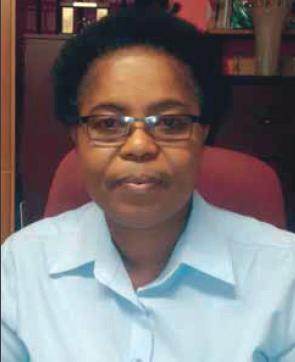
Some of our highlights include being part of the panel of National Teaching Awards (NTA) adjudication. It is always exciting and fulfilling to come across a number of school leaders who are “Proudly SAPA members” who publicly announce how SAPA contributed to their successes in school leadership. These claims indicate to us that all school principals in South Africa should be SAPA members for professional development, to learn and enhance their leadership practices.
Recently, SAPA was invited to make valuable contributions and recommendations to the draft of the National Strategy on Learner Discipline in Schools and Review of Protocol on Elimination of Corporal Punishment. The drafts will be completed by the task team and submitted to the Minister who will later release it for public comment. We would like to be pioneers of ‘Whole-School Approach to Positive Discipline’ as it has done wonders to so many schools, even before the revised protocol has been released.
Our provincial conferences, breakfasts, workshops and seminars have given SAPA members an opportunity to interact and share good practices. Our members are given opportunities to engage on constitutional matters and influence change and reviews. We would like to encourage all principals and deputies to seize these opportunities of learning and actively participate in such gatherings. Some provinces have even been able to draw Provincial Department leadership to support these gatherings.
‘Brian Parsley, a motivational speaker has written an article worth sharing.
He says, in the beginning we all set out to climb the mountain, but when life gets in the way, we settle for what is ‘realistic.’ The fact is, one has the potential to achieve anything desired if we commit. We all want to be the best version of ourselves, whether it’s developing a sixpack, making a vast amount of money, or just being happy. Unfortunately, what most us lack is patience and endurance to succeed, which comes with pain.
Pain is a feeling, but also the perception of discomfort. Very few rewards in life come without pain. If you are looking for an easy way to achieve your personal or professional goals, keep dreaming.
Life never gets easier but experiences create a higher tolerance to the pain life freely gives. Your ability to thrive in the face of adversity does more than make you stronger—it makes you a winner. It is not wealth but a feeling of accomplishment we want, something most people will never have.
The big question is: Are your goals really your own? Do you allow your dreams to be dictated by societal standardsor by the way you are judged by others?
To achieve your goals requires some sacrifices. How much time are you willing to commit each day to achieve the goals you set, regardless of circumstances? How much are you willing to commit to this venture with zero return?
We live in the world of instant gratification, but reality dictates that things do not come easily or quickly. Personal and professional aspirations always come down to your willingness to commit to your goal. Focus on why you are doing it and the rest falls into place.
Imagine: A mothers pain threshold during child birth. She goes through it enduring the pain because of the bigger reward at the end.
TO ALL SCHOOL LEADERS, Push through the pain knowing that in the end you will be proud that you did what most people would not endure. Set your goals high, commit and endure the journey to success. You will get your reward!

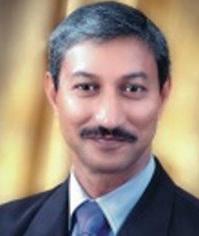
“If a man is called to be a street sweeper, he should sweep streets as Michelangelo painted or Beethoven composed music, or Shakespeare wrote poetry. He should sweep streets so well that all the hosts of heaven and earth will pause to say, “Here lived a great street sweeper who did his job well.”
As leaders of schools we need to have such passion for our work that when those who succeed us stand in our schools, they should say this was a great principal who made a difference in people’s lives and brought change, not just to a school but to a community.
As the South African Principal’s Association, we want to build a cadre of professionals who will create a new dynamic image for not just the teaching profession but for leaders in the profession.
It is through professional networks that we will ensure quality leadership and quality education to everyone who passes through the passages of our schools so that the next generation have the skills and knowledge to lead this country into the next century.
Daya Chetty – President South African Principal’s Association – Gauteng
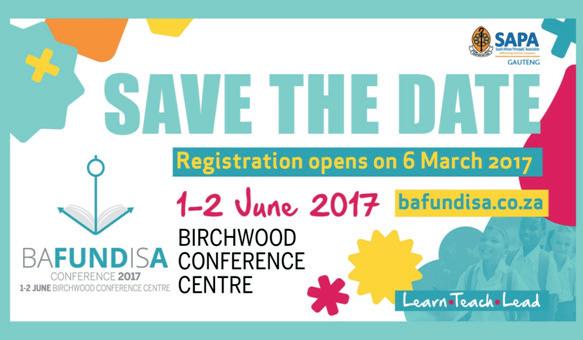
ACTIVITIES OF SAPA GAUTENG FOR THE PERIOD 1 JANUARY TO 31 MARCH 2017
18 January 2017
Workshop Actonville Training Centre –Special School Topic: Dealing with discipline at a special school
24 January 2017
SAPA Exco Meeting at Fairways Primary School Agenda: Preparation for leadership conference
22 February 2017 Inaugural Mayoral Economic Summit
23 February 2017
SAPA National Executive Meeting –Groenkloof UP
24 February 2017 Meeting with DBE
3 March 2017
SAPA Gauteng leadership breakfast at The Moyo Zoo Lake.
11 March 2017
Madibane Comprehensive High School. Conducted a workshop on the following areas:
• Interpersonal relations in the workplace
• Employment of Educators Act (Job descriptions)
• School safety and discipline
4 April 2017
Tigerbrands Foundation Workshop –Emperors Palace Topic: Nutrition in Education
Next Event: 1 and 2 June 2017
Gauteng Provincial Conference
– Birchwood Conference Centre, Boksburg

More than 300 principals and deputy principals attended the leadership conference which is normally our Valentine’s breakfast
We were entertained by a band from Johannesburg, Triple Treasure. The delegates were serenaded with music from Jazz to Old school.
Daya Chetty, president of SAPA Gauteng presented a paper entitled: “School safety and violence at schools: a legal perspective.”
Program Directors: Sibusiso Ndebele and Sam Marshall of Morning Live. Microsoft SA presented their roll-out of software licences to all schools in Gauteng which will be done free of charge. Teachers and learners will receive free licences for all their computers and tablets.
Macmillan Education addressed the delegates about their partnership with SAPA Gauteng and informed delegates about the HOD and SMT training on financial management and venues.
The delegates were treated to a sumptuous brunch and enjoyed the music whilst sharing communities of practice.
This was again another successful leadership breakfast and the recruitment of new members.
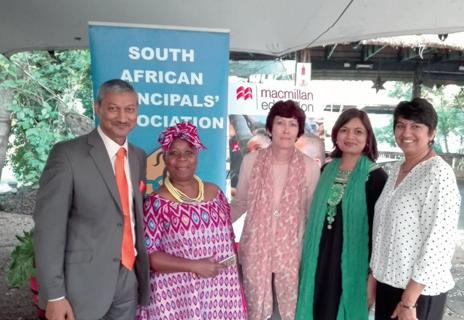
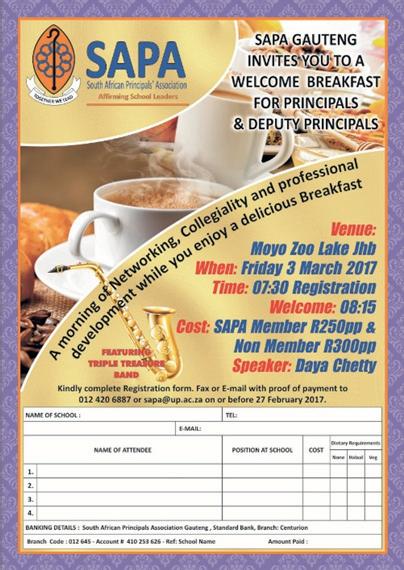


Delegates at the leadership taking a “selfie” as requested by the MC, Sam Marshall. It is interesting that not many principals have twitter accounts.

John Maxwell says: “A leader is one who knows the way, goes the way, and shows the way.” These words are very true about Mr Thulare Bopape, a passionate principal, effective leader, exceptional educator, compassionate compatriot, faithful friend and steward of the Saviour.
In 2005, whilst SAPA was still in the early stages of inception, Mr Thulare (as he is affectionately known) joined the association; committed to making a difference and living the motto: Together we lead.
His humble but honourable presence guided many meetings, as his only goal was for SAPA to succeed in the face of adversity. His integrity and loyal leadership earned him the respect of all the colleagues on the SAPA executive during those first demanding days; when, as SAPA, we were faced with the challenges of establishing trust, growing membership and convincing the DBE that we had no hidden agenda.
Mr Bopape was committed to education as he was frequently networking with neighbouring schools, facilitating professional development and growth. He served as role model to his superiors, peers and subordinates as he always lead by example.
During his term as SAPA principal, he established sound relationships and commanded respect from all. He has added immense value to the education fraternity in the cluster, the district and the province. He is a resourceful person and an ethical leader who executes his responsibilities in line with the strong values he holds, displaying impeccable professional conduct, accountability and integrity.
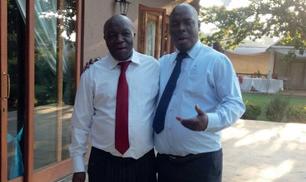
Mr Bopape & his protégé
Under his leadership as conference chair, SAPA organised very successful national conferences while displaying the strength and solidity of character needed to stand up to the criticism and appreciate the accolades. He was able to translate vision into reality and paved the way for many principals to follow.
Mr. Bopape has served education well, but now the time has come for him to rest. He will certainly be missed in meetings and at school, but the SAPA executive will certainly feel the loss of his strong presence! Retirement may be an ending, a closing, but it is also a new beginning; the beginning of a life where Thulare can do what he wants to do, when he wants to do it, where he wants to do it, and how he wants to do it.
SAPA Gauteng wishes to thank Mr Bopape for his contribution and commitment in driving the agenda of SAPA forward. CAPS ALIGNED
The Thokozani Foundation Phase Graded Readers is a collection of lively, original stories that will develop literacy but also a love for reading. Each grade has three levels (Beginner, Intermediate and Advanced) and three readers per level to ensure learners’ progress in their reading abilities. The stories draw from the real world so that learners can associate with the stories. The series is CAPS aligned and each story is accompanied by activities to encourage further learning. The series is available in isiZulu, isiXhosa, Sepedi, Sesotho and Setswana
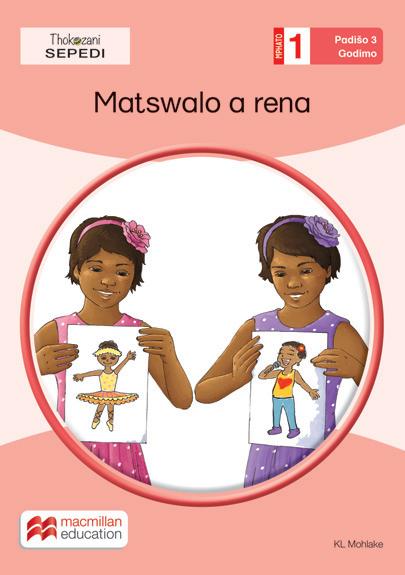
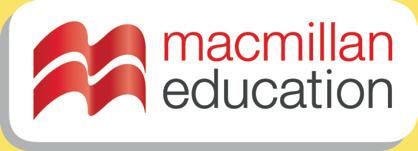



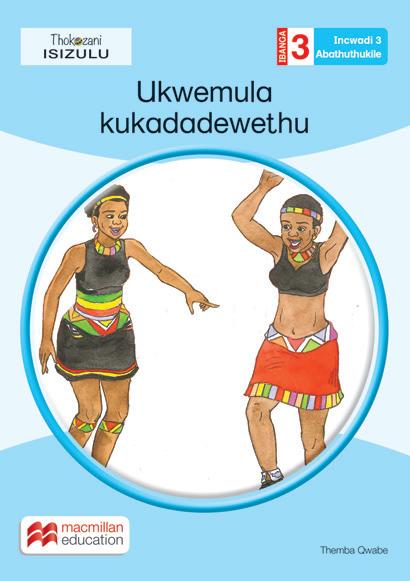
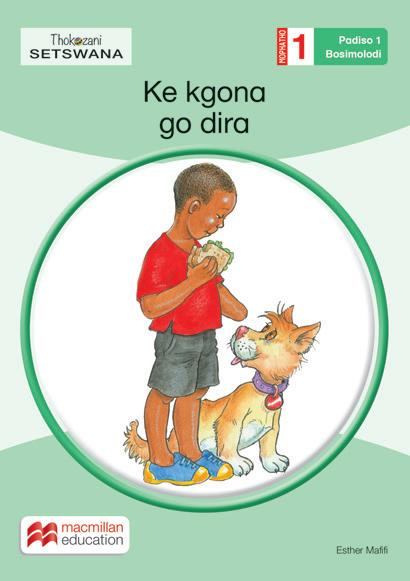
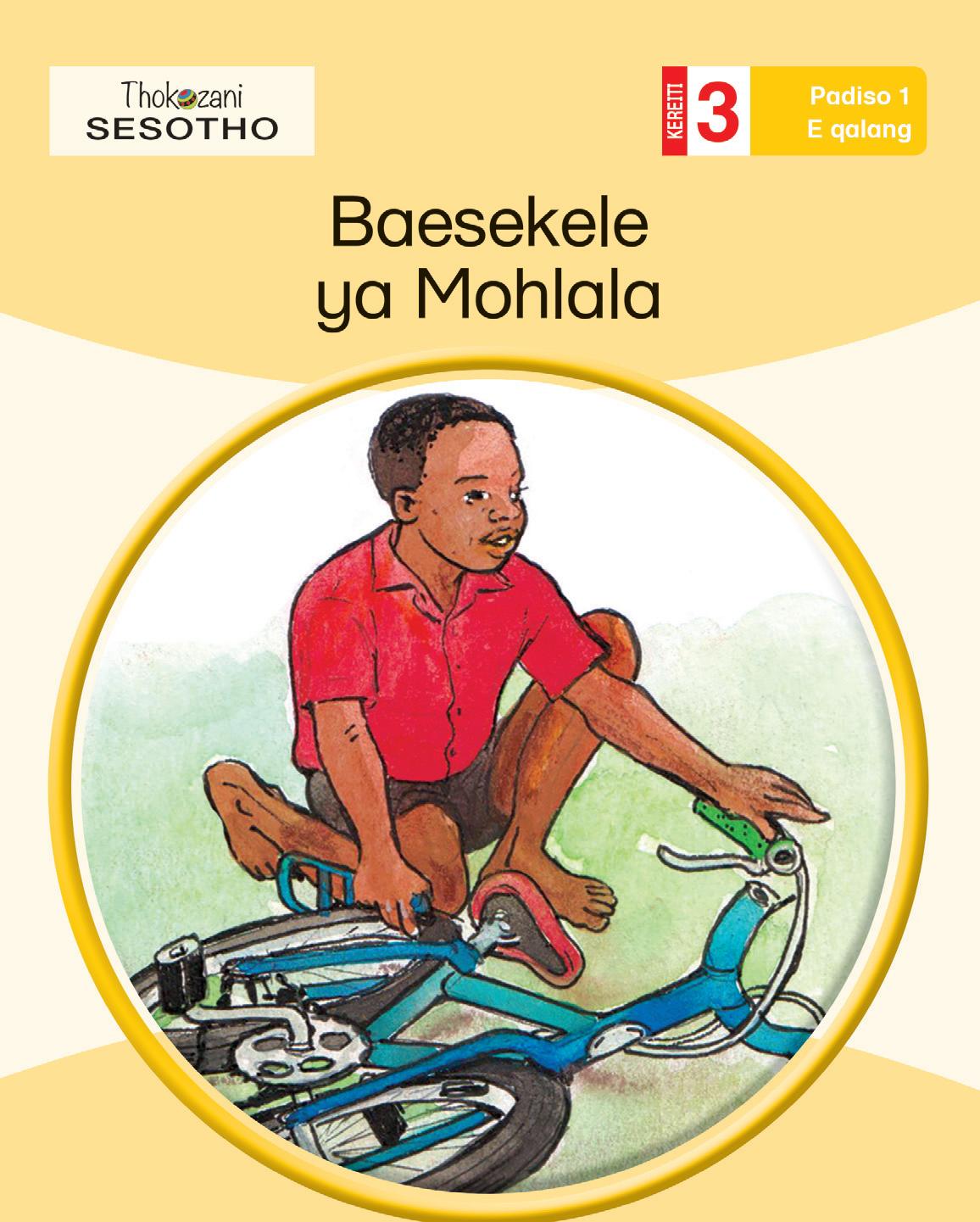


On 26 and 30 March 2017, SAPA had the privilege of being part of the stakeholders meeting organised by the National Education Portfolio Committee as they were doing their oversight visit to Gauteng, which was led by Honourable Gina.
In attendance was Gauteng Legislature led by Honourable Joe Mpisi, DBE Senior Management, GDE Senior Management, Governing Body Associations and Labour.
Above is Honourable Joe Mpisi (Left), Honourable Gina (Middle) and MEC Lesufi (Right)
The MEC and Senior Officials gave the State of Education in the province, highlighting both the good practises as well as the challenges the province is facing.
Part of the report back was the comparison between the current state and GDE goals set for 2019.
Matric
Grade 3 – 9
• 85.1% pass rate
• 38% Bachelors’ pass rate
• 67% of Grade 3 and 6 learners score > 50%
• 5% of Grade 9 learners score > 50% on maths
• 35% of Grade 9 learners score >50% on languages
• 48% of learners in no-fee schools score ‹ 50% on average
EnrolmentLess enrolment between 2008 – 2013 across grades
Report back on Universalisation of Grade R
• 90% pass rate
• 40% Bachelors pass rate
• 75% of learners score> 50%
• 40% of Grade 9 learners score >50% maths
• 70% of Grade 9 learners score >50% on languages
• 30% of learners in no-fee schools score ‹ 50% on average
20% more enrolment in key subjects between 2015 –2019 across grades
• Gauteng province is currently at 95% of the universalisation of the Grade R access target comprising of 160 000 learners by 2019.
• GDE has developed Draft Regulations to improve the management and administrations of Grade R at public schools and independent schools as well as community based sites.
• GDE trains 750 Grade R and pre-Grade R practitioners per annum.
• DGE currently has 1 155 (30.5%) practitioners at level 4 and 826 (21.9%) at level 6.
Important to note are the important questions the province continues to ask itself: How do we improve the transition from school to post schooling opportunities?
-Increase Gauteng matriculants enrolment at university
-Increase employability of Gauteng matriculants with educational opportunity
-Increase the self-employability of Gauteng matriculants
-reduce dropout and increase throughput
How do we reposition the department to ensure alignment to the deliverology methodology and achieve the set targets?
How do we make learning the core business?
How do we improve on the learner-teacher transaction in the classroom? How do we deliver strategies to improve learner performance and attainment?
Challenges
• Ensure that teachers’ salaries are improved drastically
• Principals are given more power to execute their work
• Grade R learners form part of school enrolment
• Power of recruiting principals be taken away from SGB
Challenge to SAPA
SAPA to be actively involved in giving inputs, especially when public comment is requested as well as being part of stakeholder meetings in provincial legislatures.
Comments from the committee
The portfolio committee was impressed by what they saw in Gauteng, especially the introduction of ICT as part of NDP deliverables and how the province has taken a bold step in addressing the admission, nutrition, infrastructure and transport challenges.
The fact that the department is able to have cordial relations with all stakeholders in the province is commendable.






Learn to Code books have fun and engaging creative activities which provide coding practice and are ideal for coding clubs and homework. The step-by-step activities are easy-to-follow and will help children to become master coders!







Complete step-by-step, easy to follow activities
• easy to foollow w acttivitiees
Practice coding with a variety of free software
• Practice with a of free sooftwa w re
Become master coders with exciting creative activities
• Become master coders with excitinng creative activities
Find more information at www.risingstars-uk.com/coding
TitleISBNLanguage
Learn to Code Practice Book 19781783393411English
Learn to Code Practice Book 29781783393428English
Learn to Code Practice Book 39781783393435English
Learn to Code Practice Book 49781783393442English The books include manageable pupil-led projects to suit all abilities, including many open-ended activities to stretch and challenge more able pupils. There are 12 exciting activities in each book, that use free software children can download and use at home.
email: customerservices@macmillan.co.za | tel: (011) 731-3300 | fax: (011) 731 3535 web: www.macmillan.co.za



In February, SAPA PEC had a meeting with SACE CPTD Provincial Coordinator Mrs K. Seroto and SACE Provincial Head Mr M. Marumo, at Toka Primary in Bloemfontein. The purpose was to forge the relationship with the intention of making it easier to implement the CPTD Management at school level.
Our SAPA PEC members Mr S. Shale (Motheo District Chairperson), Mr D. Tsipane (Lejweleputswa District Chairperson) and Mr M. Tau (Thabo Mofutsanyane District Chairperson) also later invited principals and helped them with the process of registering online and recording and capturing activities.
The FS Department of Education invited the Provincial Secretary Mrs T.C. Mmui to assist with the Training of PL 1 Educators regarding CPTD Orientation and registration in the district as this was a massive exercise that needed a lot of manpower. She joined the DoE team under the leadership of Mr Photolo. The programme was successfully rolled out.
SAPA Free State, in partnership with Macmillan Education will be training HODs across the province from 15 to 19 May 2017. We are looking forward to successful and well attended training sessions.

SAPA Free State hosted a very successful conference at BON Hotel, where 234 principals attended
Topics discussed were:
• Effective leadership – DDG Khoarai – FS Department.
• Policy on progressed learners – Director EMGD – Mr James Ndlebe.
• Education law – Dr Tladi – UFS.
• Sharing best practices – Mr Molete Rantsane – Principal of Secondary School.
• Financial management at schools – Director EMGD – James Ndlebe.
• Recognising and handling the effect of poverty and HIV/AIDS in our schools and communities – Professor Jita – UFS.
• CPTD u pdates – Mr Richard Twala.
Thanks to the Department of Education (Basic and Free State) for their full support at all times.

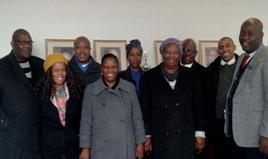

SAPA Western Cape applied an uncommon approach to counter the dropping attendance levels at provincial burning issues sessions. The provincial executive investigated ways to ensure that the members would still receive vital information, even though they may be in different locations or even sitting at their respective desks at school.
On 24 March 2017, instead of calling all members to a central venue to discuss the issue of how learnerships can be implemented effectively at schools , the membership in the province received a link to join the conversation through the ZOOM platform. A free ZOOM session was generated, the link sent to all members, and at 14h00 all members could log on to join the discussion.
Gavin Keller, a principal and SAPA member from one of the local schools, was allocated 20 minutes to do a presentation on how his school implemented a very effective learnership programme. As usual, Gavin was able to share very valuable information with principals who were interested in starting such a programme at their own schools. During the last twenty minutes, all participants could pose questions to Gavin for clarification and more information.
The provincial managers from FEDSAS were part of the discussion and commended SAPA WC for taking this inexpensive route to get information across to members and stay in touch with them. Feedback from the other participating members was also very positive and encouraging.
SAPA WC will use this method of connecting with members more regularly in the future and would like to encourage other provinces, especially those who have to travel long distances to meetings, and the NEC to consider this platform in order to curb exorbitant costs of meetings.
SAPA Western Cape has always had a good relationship with the MEC for Education, Mrs Debbie Schäfer and the Heads of Department in the province.
Last year our association went through a period of uncertainty as the contract of our previous Head of Department came to an end and a new person was about to be appointed. SAPAWC scheduled a meeting with Minister Schäfer to ensure that SAPA-WC continued to enjoy the relationship that was established under Ms Vinjevold. She assured us that they valued our relationship and that everything would continue as in the past.
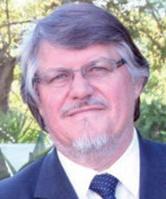
We were pleasantly surprised to discover that an old friend of SAPA’s, Mr Brian Schreuder, was appointed as the new Head of Department in the province. One of the first things he did was to call SAPA to a meeting to share his vision with us and to discuss the way forward.
Quarterly meetings with the Head of Department were once again established and at our first term’s meeting, Mr Schreuder informed SAPA of the WCED’s goals for 2017. He emphasised the fact that quality education for all was one of their primary objectives. They have therefore declared 2017 ‘The Year of the Teacher’ and are determined to appoint competent people to achieve their goals. Introducing specific values into the system was also discussed.
In response to SAPA’s questions, Mr Schreuder informed the team that the Western Cape Education Department will be focusing on the Intermediate Phase in 2017, that enrolment dates for 2018 had been set and that action will be taken against principals who did not administer the Systemic tests.
He invited SAPA to (1) suggest enrolment dates for 2019 (2) to comment on the appointment of principals and (3) to assist him in finding placement for the 3 000 children who were still waiting for placement at schools. He also indicated that he will assist SAPA to start a conversation with the universities in an attempt to improve the preparation of newly qualified teachers.
We look forward to continuing our mutually beneficial relationship with Mr Schreuder and the WCED.

• NWSAPA was invited to attend Bosberaad at Mamosa Circuit at Schweizer Reneke. Mr France Mabena and Tiny Diale represented the association and presented on SAPA.
• The Provincial Executive held a meeting on 3 April 2017 at Bakang Selebo Primary school at Ngaka Modiri Molema District (Mahikeng).
• NWSAPA (Mahikeng Branch) attended general meetings and prepared for the SACE Workshop.
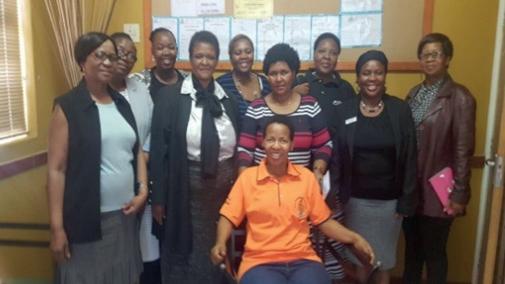
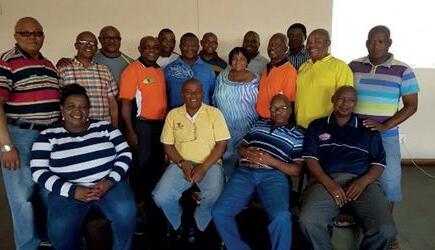

s difficult to undersstaand, itt’’s wondeerful to havve a hel e ping han a d to o mak a e s that kind of helpp! The five Maths Gaps for

When there’s an area of Mathematics that’s difficult to understand, it’s wonderful to have a helping hand to make things easier. The Maths Gaps series offers just that kind of help! The fi books for Foundation Phase will help learners to overcome problem areas so that these don’t continue into later years.
Each Maths Gaps book covers Grades 1, 2 and 3 and works through all the basics that learners will need. Each book:
• addresses specific gaps in focused sections

• briefly describes to the teacher, tutor or parent how to approach the learning under each heading and what to focus on

• provides an example of how to do a particular section of work
• provides lots of activities per section for practice

• offers assessments to use at the end of each grade, provides a fi phase assessment to make sure that learners have grasped the previously tricky learning area and addressed the Maths Gap!
eas so that these donn’t connti t nue e in i to later years s and 3 and wor o ks s through alll the h bassiics ctions or hoow to o appproach the e s on section of work or of each a finaal end-oofearners have preevviously y Maths Gap!


The series was written and reviewed by Foundation Phase experts and is compliant with the CAPS curriculum. The Maths Gaps intervention tool that can be used in the classroom and at home. Mathematics can improve, with these fun, easy-to-use books!


ndation Phase experts and is s coompliant t series is a useful practice and ssroom at un, books!



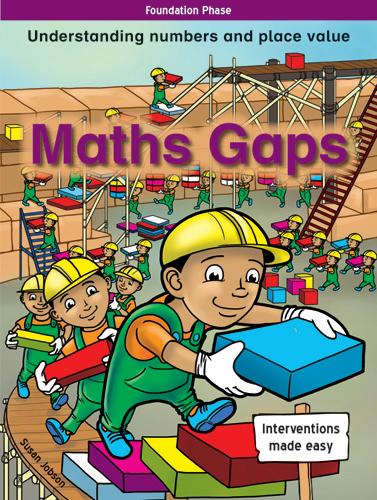
email: customerservices@macmillan.co.za | tel: (011) 731-3300
l: tel: (011) ) 731 3 -3300 fax: (011) 731 3535 | web: www.macmillan.co.za




SAPA Limpopo hosted their first Breakfast Workshop for the year at Bolivia Lodge on Friday, 21 April. The workshop was well attended with more than 100 delegates, more than initially expected.
The workshop went very well. All the relevant speakers attended the workshop. Many of the speakers presented on very interesting topics, such as Deputy Director General of District Coordination and Governance, Ms K.O. Dederen, who presented on ‘How to make our schools super performing schools’. Curriculum Advisor, Mr N.C. Nndwamato, who is based in Vhembe District, took us through ‘Curriculum Management: Item analysis and Profiling of learners’. He is an expert in this regard.
Our next event is the Provincial Conference which will be taking place at MJ GATEWAY in Polokwane on the 1st and 2nd of June 2017.
The following topics will be covered:
• Barriers for learning
• Radical leadership
• How technology is changing teaching and learning.
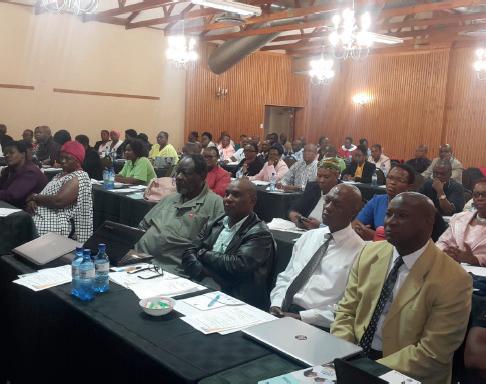
For more information contact: sapalimpopo@live.com or ramulumomr@gmail.com
SAPA-NC held an information sharing session for principals and deputy principals in the John Taolo Gaetsewe District in Kuruman on how to complete and enter CPTD points and activities onto the SACE system. Newly appointed principals and deputy principals were registered on site and taken on board. This presentation was done by Mr Dumani Mqomo, the provincial SACE-CPTD coordinator.
The second presentation was the advocacy presentation for the National Teaching Awards. The purpose was to encourage principals to participate in the competition by entering teachers and principals and to promote the awards at provincial level.
This presentation was done by Ms Merementsi, the provincial NTA coordinator.
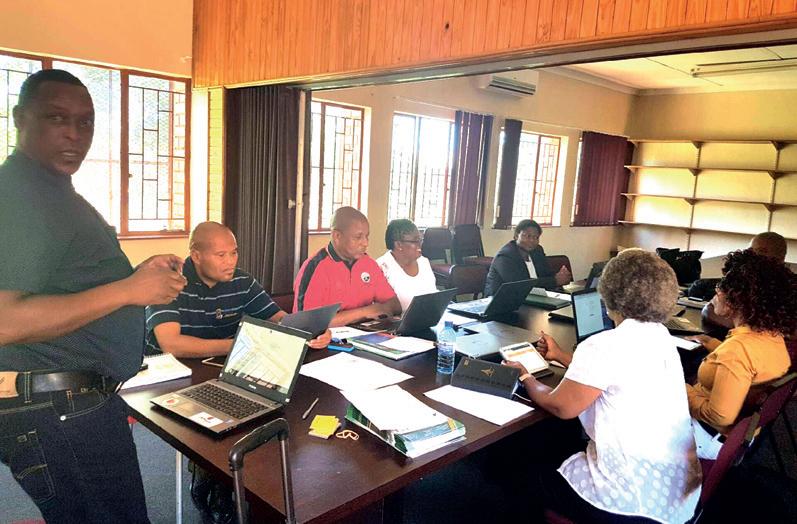


The NC SAPA Provincial and the John Taolo Gaetsewe Regional Structures were hard at work as they were taken through a refresher session on SACE CPTD points and the National Teaching Awards.
In addition to that, both structures focused on the Provincial program for 2017, amongst others, strategies on how to grow the provincial membership.

On 17 January 2017 the Eastern Cape hosted a Principals’ breakfast at Cape Recife High School in Port Elizabeth, to welcome back the Principals after the December 2016 break.
This occasion was well attended with a positive and upbeat atmosphere marking the policy of recruitment of members that was announced by the Eastern Cape Chairperson, Donovan Cairncross.
As the EC is so vast and widespread, the Committee plans to incorporate other outlying areas and not only Port Elizabeth, to embark upon a drive to link the schools in the Province and recruit Principals who will benefit from being members of our professional Association.
The breakfast attracted 35 Principals and Deputy Principals with several new members enjoying the event. Attendees were addressed by our guest speaker, Grant Butler, the Deputy Principal of Grey Junior Boys’
School who motivated and inspired members, not only to continue their professionalism as SAPA members during their term of office, but also to continue with self-evaluation as fuel for personal growth.

POINTS TO PONDER on what we have learnt during our time:
1. OVERPARENTING. Parents do too much for their children today: assignments, homework, household chores, leaving children without sense of responsibility.
2. CO-DEPENDENCY: As a result of doing everything for their children, children do not take initiative, but come to rely on teachers to do everything. They fail to think for themselves.
3. WHAT YOU PUT IN, YOU GET OUT. This is an old biblical adage which is still relevant today. What you sow you will reap.
4. STANDARDS OF LEARNING. Negativism towards learning is creeping in with children wanting instant gratification.
This presentation was insightful and humorous and highly enjoyed. New members who were welcomed: Moos Erasmus (Walmer West Primary), Corrie Van Eck (Kabega Primary), and Veronica Maqokolo (BJ Mnyanda).
A newly-appointed Principal who joined us was Henry Graham from Linkside High School.
Cape Recife High School has become the “home” venue for most of our functions as they boast a magnificent conference centre, hall and smaller meeting rooms with excellent service and food prepared by the Hospitality Learners and staff giving learners practical experience. We appreciate this teamwork in making our gatherings a success, and thank the Principal, Jacques Hugo for his hospitality.
The executive committee of the Eastern Cape SAPA branch has made great strides in spreading the word about SAPA in this vast province. At the end of last year, the chairman and vice chairman visited Grahamstown to attract membership in the Albandy area and promote the SAPA cause for principals.
In May, the entire executive body will take to the road in an effort to foster a greater awareness and campaign for SAPA growth in the Border Kei region with a 2 day road trip which will entail meeting in East London, Butterworth and the Fort Beaufort regions.
This recruitment drive is aimed at creating a greater awareness of the undertakings done by SAPA, the present representation at National level and the benefits of the body for professional development of principals in their task as school managers and the challenges they face.
The SAPA EC executive looks forward to a fruitful and successful undertaking and looks forward to a positive feedback by the time the next newsletter is due!
Barbara Parsons

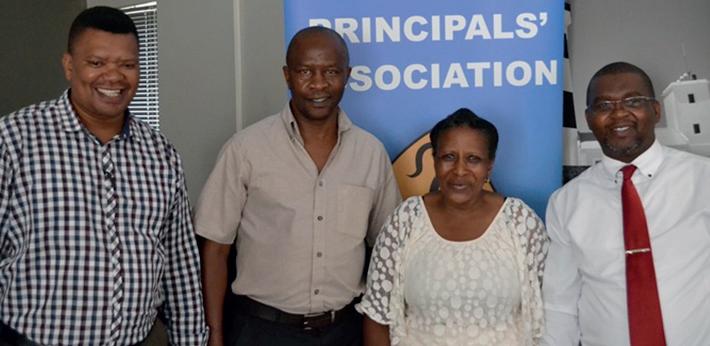
Mbuleli Sandi (Cingani High School), Richard Sonkwala (Motherwell High School), Veronica Maqokolo (BJ Mnyanda Primary School) and Simphiwe Lukasi (BJ Mnyandi Primary School). Other new members not in the picture are Sydney Cairncross (St Augustine Primary School), Robin Stevenson (Muir College Boys’ School).

SAPA KZN delegation: Ms Linda Shezi, the Provincial Secretary and Thembi Ndlovu, SAPA National President at a meeting with the Provincial Education Management Directorate: Mr Manganye the Director for Teacher Development and Mr S. Nkosi, Deputy Director on 7 February 2017.
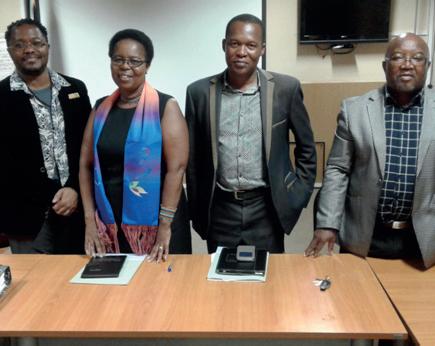
SAPA KZN was warmly welcomed by the leadership of EMD, Teacher Development at the Provincial Offices. Presentations by SAPA received positive responses and for the first time, the Director and Deputy Director were able to understand and appreciate the contributions made by SAPA to quality teaching and school leadership.
They applauded SAPA National for their initiative of the Induction and Mentorship Programme which they will gladly support when it is rolled out. SAPA KZN, working together with the Provincial Department, Teacher Development will support PLCs/Peer Education initiated by SAPA and VVOB. SAPA was introduced to Educator Leadership, Development and Management (ELDM). The Director openly declared their support for future meetings with SAPA, to give SAPA a platform when they invite stakeholders and include SAPA in some of their programmes.


In keeping with our 2017 theme of ‘Raising Giants’ our Principals’ Breakfast was an inspiring morning for all who attended this annual event. Great food, an excellent speaker and most importantly, connecting with colleagues, was the order of the day.
We were inspired by Niel Steinmann who not only helps raise giant leaders at the workplace, but has also raised over thirty lion cubs to maturity. “It is from nature where we recognise the value of leadership, understand the importance of ‘playing to your strengths’”. We, the most sophisticated of all species often stand in awe of nature. Lions specifically, teach us wonderful lessons… lessons about life in the pride.” Niel highlighted what he has captured over a number of years studying lion behaviour, and shared valuable teachings that we can apply in our business and personal lives.
Some of the lessons learnt were:
1. It’s all about relationships.
2. Hunt to your strengths.
3. Lions live in the tension.
4. Resting is part of the plan.
5. Wisdom from failure ... turning mistakes into success.
6. “Hunger” is a prerequisite for success.
7. True leadership brings stability.
On 9 November 2016 a coffee and cake afternoon was held at Durban Girls’ High School. Jane McIntire, CEO of Thinking Schools SA (KZN), presented to the principals and deputy principals “how to make a school a THINKING SCHOOL.”
Using thinking maps, those in attendance were challenged to reflect on their schools but also to implement THINKING SCHOOL strategies in their schools.
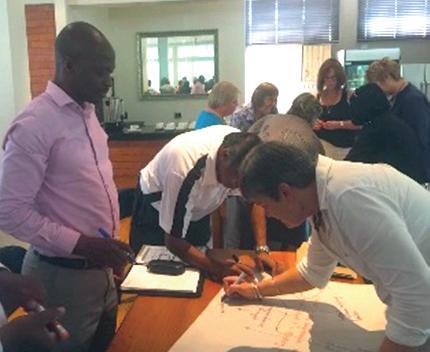

“If your actions inspire others to dream more, learn more, do more and become more, you are a leader.” - John Quincy Adams
Corporal punishment in South African schools is illegal, yet it’s still happening –with the blessing of many parents
Written and researched by Daya Chetty, Principal of Laudium Secondary School and President of the South African Principal’s Association (SAPA-Gauteng)
Being a school teacher is becoming an increasingly difficult occupation for many teachers, especially those that have just joined the profession. The reason that teachers feel despondent and are apathetic is due to the lack of discipline and respect shown by learners towards them.

Many educators throughout the country believe that corporal punishment was abolished too soon, without empowering educators with proper alternatives to deal with learners who display poor discipline and lack respect for the educators at school.
Educators are becoming frustrated on a daily basis with the number of learners who don’t comply with simple school rules and regulations. Principals and teachers feel powerless with the lack of support and assistance when dealing with unruly and rude learners. It is purely because learners believe that they have the absolute right to behave in a disruptive and unruly manner and take advantage of the system. The constitution protects the learners who at times believe that they are above the law.
An educator from Cape Town who is not prepared to reveal his name, states: “Yes I sometimes still use my cane and it works!” He is one of the many who still break the South African law that forbids corporal punishment in schools. According to recent statistics, in more than half (51,4%) of the country’s schools, learners are still being caned. The Eastern Cape (65,3%), Mpumalanga (64,1%), and Limpopo (55,7%) are the worst culprits according to the SA Human Rights Commission.
According to Marius Smit, a professor in education law at North West University, many parents share a moral and religious conviction that corporal punishment is good and even necessary. And when parents’ religious beliefs clash with the law, their religious convictions win, even if it means they’re acting illegally.
Parents who took part in the YOU magazines’ Facebook poll say the same thing. When the principal refused to cane his child, he did it himself, in the principal’s office, one parent says. “Kids today get away with murder just because they know they can”, according to another Facebook user. “Kids have no respect for teachers anymore!”
A Grade 1 educator in Kimberley says that on parents’ evenings many parents beg teachers to administer corporal punishment. Some schools use unconventional methods to get around the law. One school offers boys the choice of getting caned or detention. Research has shown that when learners were asked whether they preferred caning or detention, they preferred caning.
They also think the abolition of corporal punishment was suddenly forced on them and without viable alternatives provided.
The issue was handled very differently in Sweden, one of the first countries to outlaw corporal punishment both in schools and at home. It happened in the 70’s and the government followed up with a 20-year programme to educate and inform parents and teachers on alternative forms of discipline, states Professor Smit.
A 10 year countrywide research project carried out by a team at North West University found that corporal punishment is indeed not the only way to maintain discipline. Well prepared teachers have the most disciplined classes,
with in class without using corporal punishment, says Professor Smit. Problems in schools include serious misconduct, such as drug abuse, assault and vandalism, which leaves teachers at their wits end. Their only option is drawn out disciplinary action such as expulsion which takes a long time to process and requires the final decision of the Provincial Head of Department of Education.
“Corporal punishment is effective in reducing negative behaviour but it doesn’t effectively promote positive behaviour.”
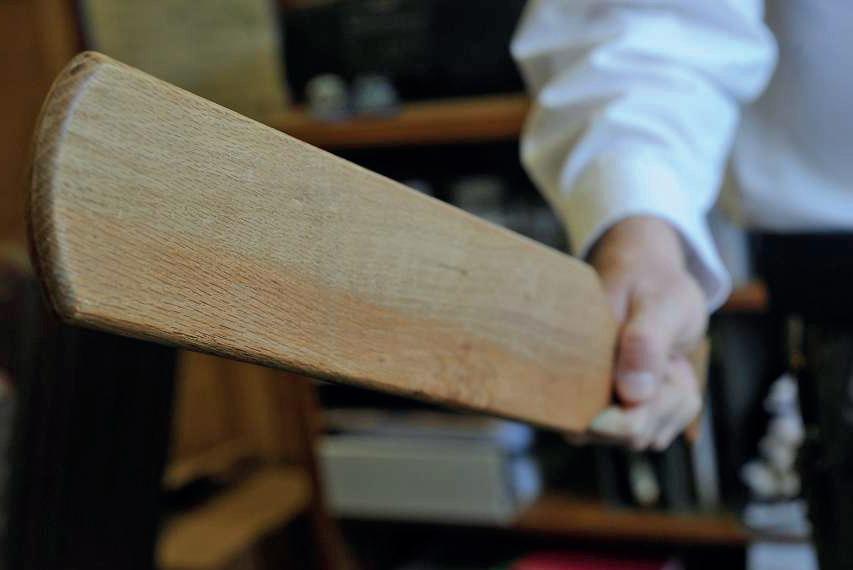
Gerhard Olivier, deputy principal of a Pretoria Primary School, discovered during his research that some of the teachers he interviewed believe that corporal punishment is acceptable if it’s carried out in a reasonable way. He conducted a study of teacher’s perception of corporal punishment as part of his Master’s degree. Teachers are also frustrated by crowded classrooms and feel that other forms of punishment such as detention are only partly successful.
team leader and former teacher Professor Izak Oosthuizen says. Such teachers manage to hold kid’s attention and stimulate them. A thorough knowledge of their subject is the second most important factor. If learners realise their teacher isn’t sure of their facts they’re likely to try to challenge the educator’s authority.
Less serious transgressions, such as talking in class or not doing homework can be effectively dealt
Professor Oosthuizen nevertheless believes there’s a place for selective well-controlled corporal punishment in schools. It should be carried out privately and not be an act of revenge.”
Professor Kobus Maree, an educational psychologist based at the University of Pretoria, doesn’t believe in corporal punishment. As a teacher he used corporal punishment because he thought the cane was effective, until one day a boy laughed after he’d given him three cuts, asking if there’d be more. The boy was being punished for putting sand in the kitchen staff’s food.
“Corporal punishment hurts and bullies the victim into complying but it doesn’t address the causes of bad behaviour.”
Another educator (name withheld), who has been a teacher in the old and new South Africa, approves of corporal punishment because he believes it works. He believes corporal punishment has several advantages: the problem is dealt with quickly, it promotes discipline, empowers teachers who work under tremendous pressure, motivates children to work harder “because they’re scared of getting a hiding” and “doesn’t deprive disciplined children of attention and time, and ensures the teacher isn’t bullied”. Many other educators that have caned learners say that since corporal punishment was abolished, teachers have struggled to maintain discipline; they’re more involved in “crowd control than teaching”.
It thus stands to reason that teaching is not an easy job and is leading to a high attrition rate of good teachers leaving the profession, not out of choice, but due to the fact that they have no support from both parents and the Department of Education. It is unfortunate that public schools in particular are paying the highest price as teachers are moving to private schools or securing positions in offices as they fear being in front of learners. Teaching in secondary schools is almost a nightmare with learners defying teachers openly without consequence or action from parents. Parents in most cases are quick to support their children when requested to attend to the matter. Teachers are ridiculed by parents and learners to such an extent that it makes you wonder why some children are “bullies” at school.
According to recent statistics: 51,4% of the country’s schools, still use canes.
The worst culprits
Eastern Cape:65,3%
Mpumalanga: 64,1%
Limpopo: 55,7%
* According to the South African Human Rights Commission.
It is about time that parents start supporting teachers and principals in the education of their child by paying more attention to what their child is doing at school and ensuring that all aspects of the schools’ code of conduct is adhered to at all times. In this way the child will know that the parent supports the teacher and the school towards a “ZERO” tolerance approach to education.
We must remember that the teacher is in that position through qualification and experience and wants to make a difference in your child’s life so that he or she may grow up to become exemplary leaders and citizens of this beautiful country, South Africa. If parents or educators are interested in participating or commenting in a discussion about an alternative way of improving and supporting teachers with discipline at schools, you can contact me by email to create a discussion forum at: dayachetty28@gmail.com
I’m interested in your constructive and positive comments.











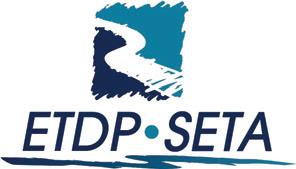
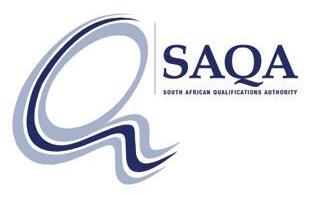



Macmillan Teacher Campus is a division of Macmillan Education South Africa and is an ETDP-SETA accredited training provider (ETDP10512).
At Macmillan Teacher Campus, our vision is to empower, motivate and develop teachers and learners in South Africa and to provide a learning pathway to continue their professional development. For the past decade, we have been a provider of cutting-edge training and excellent teacher support. We bring the training to your doorstep.
All workshop and course material is developed according to the South African Council for Educators’ (SACE) requirements. When attending a Macmillan Teacher Campus workshop, teachers will receive professional development points as allocated by SACE (SACE Provider Number- PR10690).

Macmillan Teacher Campus offers a variety of curriculum aligned workshops as well as accredited courses: We offer a wide range of curriculum aligned workshops, but understand that no curriculum is static and therefore we also offer tailor-made workshops, catering specifically for our clients’ needs, equipping teachers with knowledge and insight. Our training programmes are developed by subject specialists and we make use of highly qualified facilitators to enhance the teaching and learning experience.
• ETDP-SETA Accredited Courses
• School and Classroom Management
• Assessment
• eLearning/ICT (various topics)
• ECD and Grade R
• Foundation Phase
• Languages (Grades 1–12)
• Mathematics (Grades 4–12)
• The Sciences (Grades 4–12)
• Inclusion
• TVET




The duration of our workshops varies from three hours to three full days. On request, we can also offer a combination of any two workshops into a full day’s training.




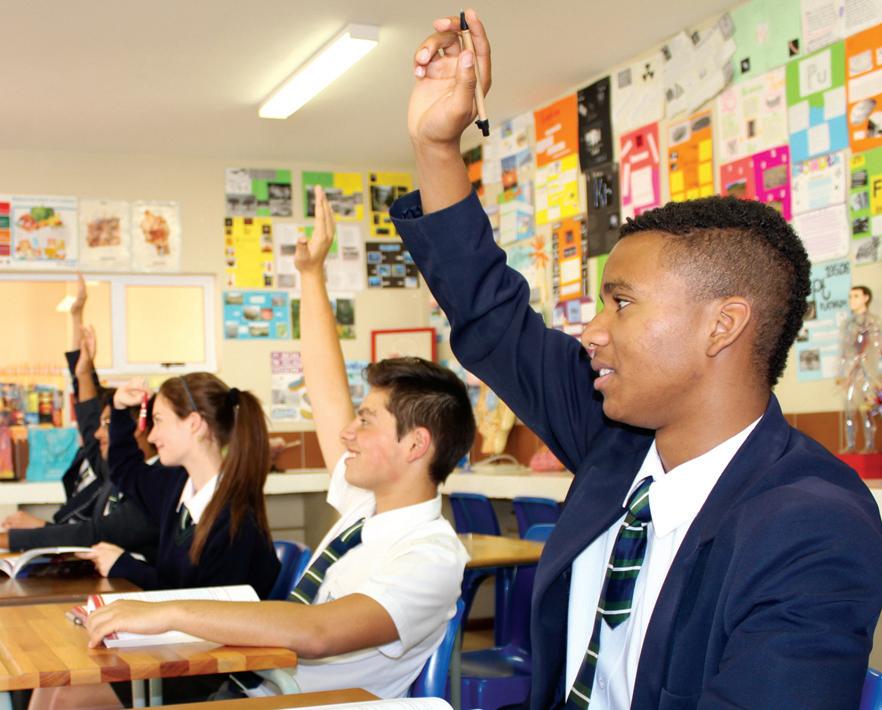
MTC has learner support programmes for FET Mathematics, Physical Sciences and English FAL. Our programmes are developed to assist learners needing support in these subjects and has a specific exam preparation focus with the aim to improve learner results. These tutor classes take place on Saturdays and during the school holidays at various schools across the country.
MTC enhances good teaching and learning practices at schools by linking continuous teacher professional development, school curriculum management and holistic school development with our large assortment of teacher development workshops. We help SMT members, teachers, SGBs and RCLs to explore knowledge and focus on the curriculum goals with reference to content, pedagogy and assessment. MTC workshops help teachers to reflect and improve their own educative practices and to cater for the diverse needs of learners.

MTC has trained over 100 000 teachers nationwide to assist them in sharpening their content and methodology skills. Our affordable, tailor-made workshops and courses provide teachers with a learning pathway to continue their professional development.

MTC runs training and support programmes for several NGOs/NPOs. We firmly believe that by taking hands with these organisations and combining our strengths and resources, we make a bigger impact in the lives of the children and teachers.
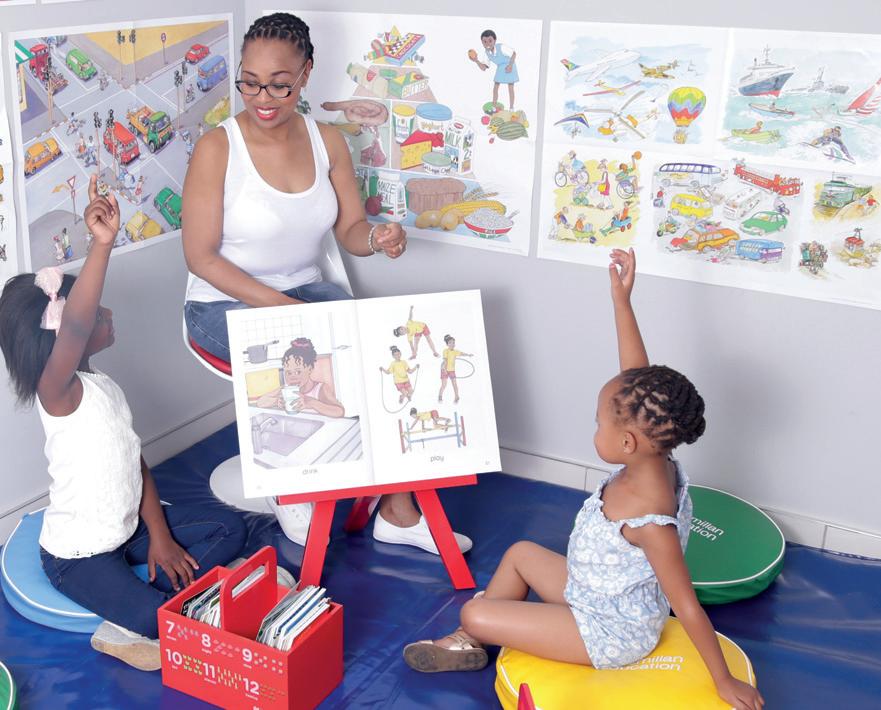
The South African Principals’ Association invites you to the 13th ICP convention to be held in Cape Town from 22 to 25 September 2017

As Neuroscience is changing the way we understand how the brain learns and retains data, the need for education to be re-imagined in the 21st century has also increased. The theme of the 13th ICP Convention ‘Brain Waves of Change’ captures the essence and the environment of the convention.
The convention will offer participants many enriching opportunities for professional development and collaboration, as we expect to host 1 500 principals and deputy principals from across the globe.
The theme of the convention, ‘Brain Waves of Change’, highlights the need to harness the power of change and current Neuroscience discoveries to benefit the children of the world. Sub-themes include:
The Neuroscience of learning
• Inspirational 21st century schools
• Radical leadership
• Human capital in 21st century schools
• Technology in education
Educationists believe that 21st century school leaders must possess the following essential skills:
• They must be able to problem solve and make decisions.

• They must exercise the ability to stay cool under pressure, which will determine their capacity to cope.
• They must collaborate, co-operate and network.
• They must be masters of facilitating change.
The conference will be held in the Cape Town International Convention Centre (CTICC), the perfect venue to discuss this topic in a unique way. The keynote speakers, panel discussions and workshops promise to enhance current school practices, challenge delegates’ thinking and stimulate them to greater action so that the children of the world can be better prepared for their future.
Visit the conference website www.icpconference.com for the registration procedures and other information.
Address: SAPA Office 1-72 Aldoel Building, Groenkloof Campus, University of Pretoria, George Storrar & Leyds Street
Email: Nthabi Legote on sapa@up.ac.za
Phone: 012 420 5550
Fax: 012 420 6887 / 086 559 0976